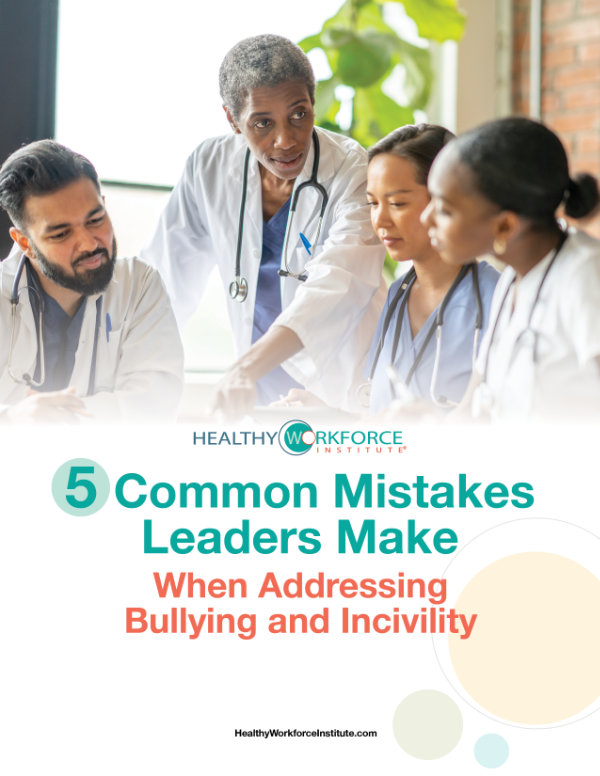Can perceived power lead to bullying behavior?
I travel a lot on airplanes and am loyal to one particular airline carrier. I’m loyal for a few reasons: They take care of me if my flight gets delayed or cancelled (even if it means putting me on a different airline), and I get perks: I get onboard early, 3 free checked bags up to 70 lbs, AND I get upgraded to first class frequently.
One day, I was sitting in first class, drinking a cup of coffee that the flight attendant so nicely offered, while the other coach passengers were boarding the plane. As they walked past me, I couldn’t help but to feel a little special. I was sitting in a nice comfy seat, drinking coffee before anyone else while they were dealing with the people in front of them who don’t know how to board a plane (step into your seat and then organize your stuff).
And then I caught myself. I caught myself for a moment, thinking that I was better than the people in coach. Yet, on the previous flight, just 90 minutes before, I was sitting 4 rows back in coach!
This is perceived power. And it’s dangerous.
Every human can succumb to thinking they are more special than others; that they have more power over other people, especially when they are treated better than others. However, it becomes a problem when these people use that power to squash people whom they perceive as less important.
One of the characteristics of people who bully others is this notion of perceived power.
How does this show up in healthcare?
- Physicians perceive that they have more power than nurses and are condescending; nurses perceive they have more power than nursing assistants and treat them like gum on their shoe.
- Critical care nurses perceive they have more power than medsurg nurses and treat them like they aren’t smart enough to be a critical care nurse.
- Leaders treat their employees like cadets in the army or children, sometimes following the bad parent’s creed, do as I say – not as I do.
Why does this happen?
If people are continuously treated as though they are better and more deserving than others, they start to believe and ACT on it. Here are a few examples:
- Physicians get their own parking spaces, “reserved for physicians” and their own section in the cafeteria (for “physicians only”).
- Critical care nurses wear blue scrubs while everyone else wears white (well, not always now).
- We often refer to nurses as, “just a medsurg nurse” yet critical care nurses are put on a pedestal.
It happens faster than you think. For instance, one day you’re working alongside your colleagues in a code brown, but the next day you could be appointed as the new manager dressing in fancy clothes with a fancy office.
There is a fine line between confidence and arrogance.
The perception of power is just that – a perception. Although the role or position someone has may afford decision-making authorities, the concept of POWER is slightly different, especially if someone uses that power to do harm to others. You and I both know that there are nurses, support staff, unit secretaries, etc. who although do NOT have an official authority position or role, they are the informal leaders on the unit.
I once worked with a charge nurse who had no direct reports, had no decision-making authority, and was not involved in decisions that involved our unit but everyone, even the manager, knew she was the “boss”.
How to undo perceived power:
- Catch yourself going down the power path
As I shared, we can all get caught up in feeling better or more special than others, especially if we are treated that way over time. However, try to catch yourself thinking you’re better than others and stop. You are NOT better – you may just have a different role. Put everyone in the same room, strip them of their uniforms and titles, and we are all pretty much the same.
- Stop allowing someone to use their power to squash others
When people treat others whom they perceive as less important than themselves, how do they know? That person could have a higher I.Q.; be smarter and more capable but maybe wasn’t afforded the same opportunities they had in life.
When you see or hear someone being condescending or rude to someone who is in a support role or perceived lower role on the ladder, say something like, “It’s not okay to treat him (or her) this way.”
- Recognize the value in all humans – all roles
Especially in healthcare, it takes every person, every role, and every skill set to effectively care for patients. Surgeons couldn’t perform surgery without the folks in central sterile processing who ensure their instruments are sterile. I think all nurses would agree that they could handle any patient load IF they had the right nursing assistant. I used to work with a physician who valued everyone the same. He didn’t care if you were the CEO, COO, CFO, etc. or the dietary aide passing trays. He valued everyone equally.
It’s not easy resisting the tendency to think you’re more special than others when everyone treats you that way. But when you are on your deathbed, do you want to go into the afterlife knowing that any power bestowed upon you (perceived or real) was used to nurture, support, and help grow others or did you use that power to satisfy your own ego at the expense of others?
If you are in a “power” role, use that role for good. Go out of your way to help everyone feel special and a valuable part of your healthcare team. As the late Jim Rohn said, “All of us needs to recognize how valuable each of us are; and each of us needs to recognize how valuable we all are.”
Physician, nurse, leader, tech, dietary aide, housekeeper, etc. it takes every one of us to effectively care for patients. Coach or first class, it’s the same damn flying “tube of toothpaste”.
Are you being bullied at work or treated like you’re less worthy than others? Check out these great resources!
Take care. Be kind. Stay connected.













4 thoughts on “How Perceived Power Can Lead to Bullying Behavior”
5
Hi Renee, what you write is common in all workplaces. When somebody reaches a higher position, they forget their own career ladders, and how they also faced similar situations they are creating for their subordinates, and how they felt that time. I, myself have passed through situations you have mentioned, and my experience say that you don’t need power and position to gain respect from the heart of your subordinates, but your good deed, and treating others with fairness and dignity can gain genuine respect from other people. It is also most prestigious accomplishment a leader can earn. Thank you for sharing these noble words.
Thank you so much for your comments Helena. It’s sad how quickly people forget what it was like to be just starting out. You are so right! Treating others with dignity is a far better way to gain their respect! Kindest regards.
5